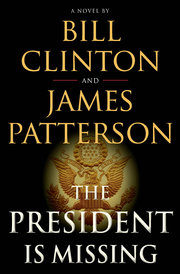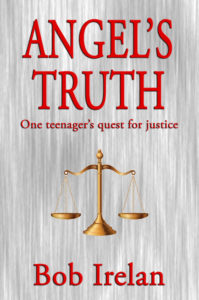


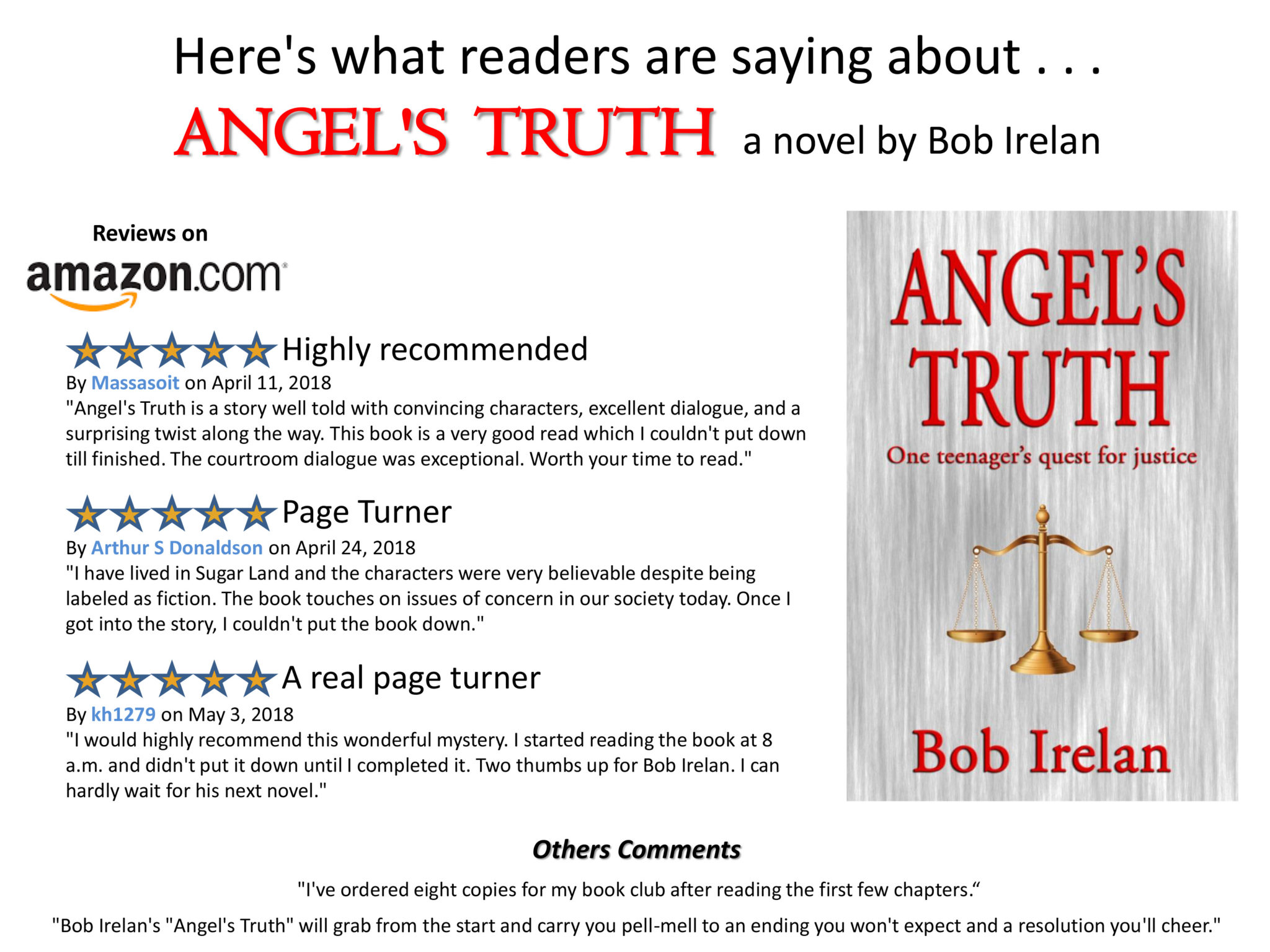
The murder mystery starts when Angel Gonzales is charged with heinous crimes that law enforcement, the media, and most folks in Richmond, Texas, and surrounding communities are certain he committed.
The crimes and trial dwarf anything that has happened in that part of the Lone Star state in anyone’s memory.
When, against all odds, the jury renders “not guilty” verdicts, shock escalates to anger.
In the minds of many, justice has failed, and a brutal criminal is being set free. For Angel and his court-appointed public defender, Marty Booker, being judged “not guilty” isn’t enough.
Together and with help from an unanticipated source, they attempt to prove Angel’s innocence.
In the process, they butt up against prejudice, deceit, and a sheriff and district attorney who put politics, ambition, expedience, and arrogance above responsibility to do their jobs.
It’s a story of horror, hatred, belief, and persistence – a story of a Mexican-American teenager who nearly loses his life on the way to becoming a man.
Outer Banks Publishing Group author Bob Irelan hopes his novel, Angel’s Truth will help people realize that justice is not always applied fairly, especially when it to comes to racial minorities
Angel’s Truth Amazon Reviews pdf
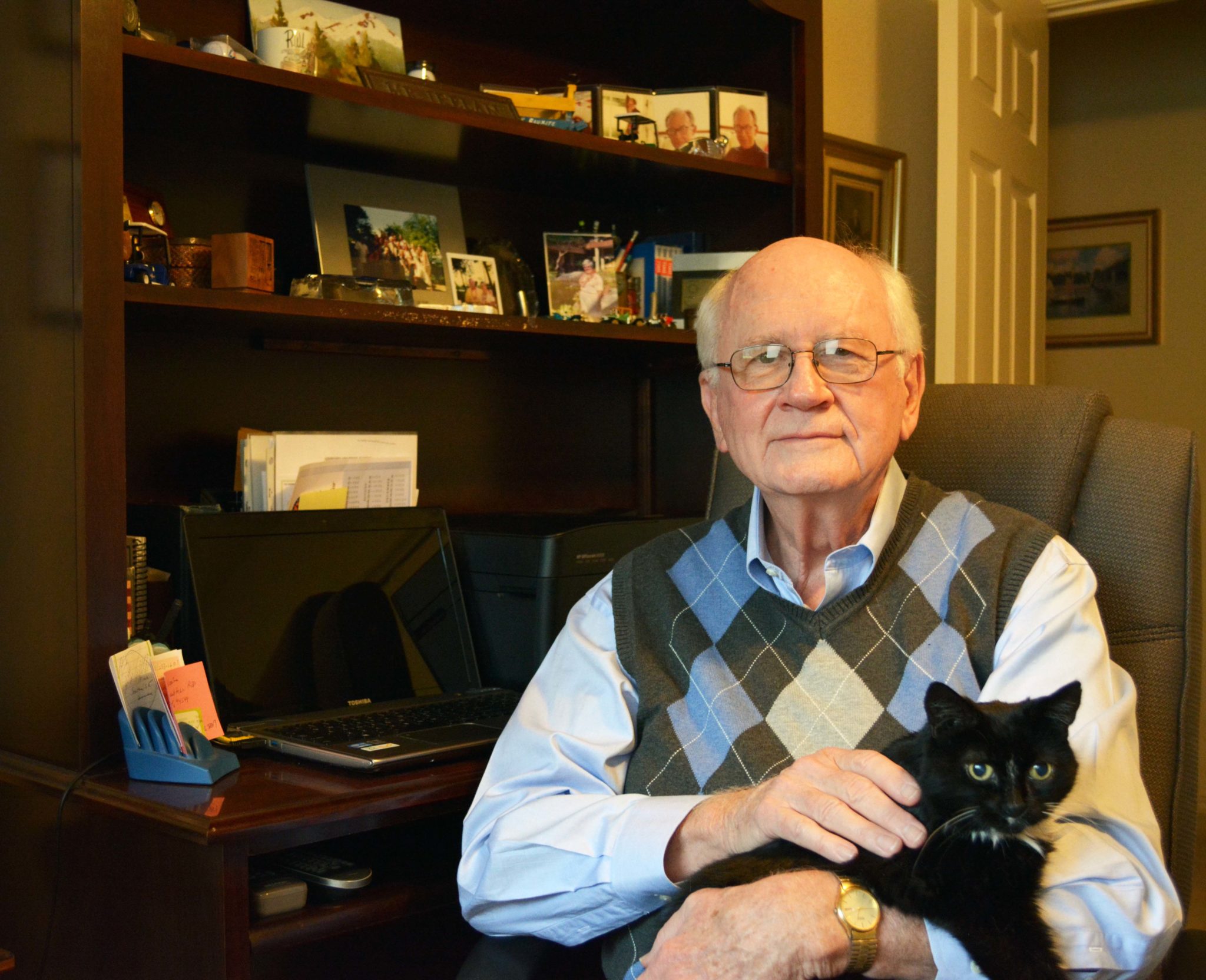
In this interview with Outer Banks Publishing Group author Bob Irelan, he reveals what inspired him to write the novel, Angel’s Truth and hopes to help people realize that justice is not always applied fairly, especially when it to comes to racial minorities.
 Bob, this is your first novel. What inspired you to write it?
Bob, this is your first novel. What inspired you to write it?
Writing was a large part of what I did during my career — first in journalism and then in public relations/communications. But, until this book, I had always dealt with facts. Reading fiction was my release and I have always appreciated a story well told. In retirement, I found the time to attempt writing this novel. It’s liberating to shape a story, make it believable, but not be bound by actual happenings. With respect to the plot, I’ve most always rooted for the underdog. For me, the character Angel Gonzales fills that role in his fight for true and lasting justice.
Were the characters inspired by real life people?
Public Defender Marty Booker was shaped at least in part by a public defender I was exposed to years ago as a member of a jury. I was impressed by how hard he worked on behalf of his client, a minority. Angel and the others were creations of my imagination.
You started your career as a journalist and then moved into corporate public relations and communications. How did you research the information for the story? Did you have any experience in the justice system?
I have to admit I didn’t do a lot of research. I lived in Sugar Land, TX, near Richmond, where the story takes place. Those locations and nearby Rosenberg are real but my description of them — most of the buildings, the park, etc. — is made up. I decided to create a setting that would work with the story I wanted to tell. My knowledge of the justice system is limited, but it’s drawn from jury service, a lifetime of reading and viewing courtroom dramas, and having a father who was a lawyer and a U.S. Attorney.
How long did it take you to research and complete Angel’s Truth?
The better part of a year, although I sometimes took breaks of a week or two. I admire writers who discipline themselves to a daily schedule. I’m sure that’s a more efficient approach than the one I followed.
I wanted to make the point that the truth often is not obvious; that finding it takes persistence, commitment and, if you’re lucky, some help from unanticipated sources. I also wanted to remind the reader about how, too often, justice is unevenly applied — especially as it relates to racial minorities. We’re not yet where we need to be as a fully inclusive society. Despite this, I wanted to write a story where hard-fought truth prevails.
Will there be a sequel? Will you write another book?
I’m not sure, but probably. I found the challenge of creating a plot and developing the characters to give it life very stimulating. Also, in writing this first novel, I overcame some personal doubts and uncertainties. For instance, I had not really written dialog before so that took some learning. The reader will judge whether I succeeded.
Do you prefer fiction or nonfiction and why?
I don’t have a preference. l love biographies and works of history. But I also love fiction, especially mysteries and those that include some courtroom drama. I admire greatly those who write well, those who can draw a picture for the reader. I love a book that grabs my attention and leaves me wondering how the heck the author came up with this or that idea.
Who are your favorite authors and did any inspire you to write Angel’s Truth?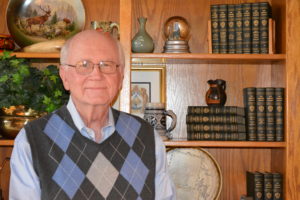
I like John Grisham, Mark Sullivan, David Baldocci, Dan Brown, to name a few. I also like historical novels by authors like Ken Follett, Erik Larson, and Anthony Doerr. In my mind, they are all amazing story tellers. And, yes, I drew inspiration from all of them as well as others.
As a first-time novelist, do you have any advice for potential authors starting their first book?
Yes. Just start writing. Don’t wait until you have everything figured out before you start. Don’t be deterred by not knowing at the outset how your story is going to end. Keep writing and see where your imagination takes you. Learn from the words and phrasing of writers you admire. Bounce ideas and text off people whose judgment you respect — those who will tell you if something is good or not. Take breaks when you need to but commit yourself to a finished product. You’ll be glad you did.
Is there anything you would like to add?
Take your time. Don’t rush the process. This was advice I got from an experienced, successful pro, and it proved to be very helpful. Don’t be shy about asking for help. There are a lot of smart people out there willing to hold your hand on this exciting journey.
___________________________________
Angel Gonzales is charged with heinous crimes that law enforcement, the media, and most folks in Richmond, Texas, and surrounding communities are certain he committed.
The crimes and trial dwarf anything that has happened in that part of the Lone Star state in anyone’s memory.
When, against all odds, the jury renders “not guilty” verdicts, shock escalates to anger.
In the minds of many, justice has failed, and a brutal criminal is being set free. For Angel and his court-appointed public defender, Marty Booker, being judged “not guilty” isn’t enough.
Together and with help from an unanticipated source, they attempt to prove Angel’s innocence.
In the process, they butt up against prejudice, deceit, and a sheriff and district attorney who put politics, ambition, expedience, and arrogance above responsibility to do their jobs.
It’s a story of horror, hatred, belief, and persistence – a story of a Mexican-American teenager who nearly loses his life on the way to becoming a man.
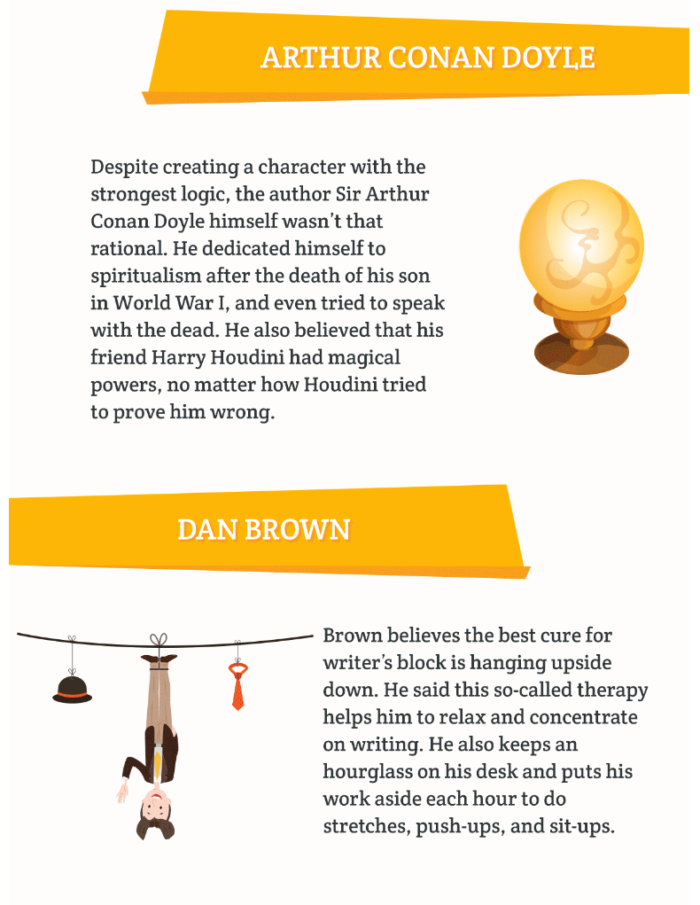
By Jack Milgram of Custom Writing

From The Six Main Arcs in Storytelling, as Identified by an A.I. by Adrienne LaFrance, published in The Atlantic
Based on author Kurt Vonnegut’s 35-year-old master’s thesis that every story has a narrative shape, a group of researchers from the University of Vermont and the University of Adelaide collected computer-generated story arcs for nearly 2,000 works of English language fiction and classified each into one of six core types of narratives based on what happens to the protagonist.
The researchers’ focus was on the emotional trajectory of a story, not merely its plot. They also analyzed which emotional structure writers used most, and how that contrasted with the ones readers liked best.
They used a collection of fiction from the digital library Project Gutenberg, they selected 1,737 English-language works of fiction between 10,000 and 200,000 words long.
Then, they ran their dataset through a sentiment analysis to generate an emotional arc for each work.
The most-prevalent six narratives the data revealed are:
1. Rags to Riches (rise)
2. Riches to Rags (fall)
3. Man in a Hole (fall then rise)
4. Icarus (rise then fall)
5. Cinderella (rise then fall then rise)
6. Oedipus (fall then rise then fall)
So if you have the proverbial writer’s block consider one of the six narratives to free your story.
Read the rest of the story from The Atlantic>
Kurt Vonnegut explains his thesis of the shape of the narrative.

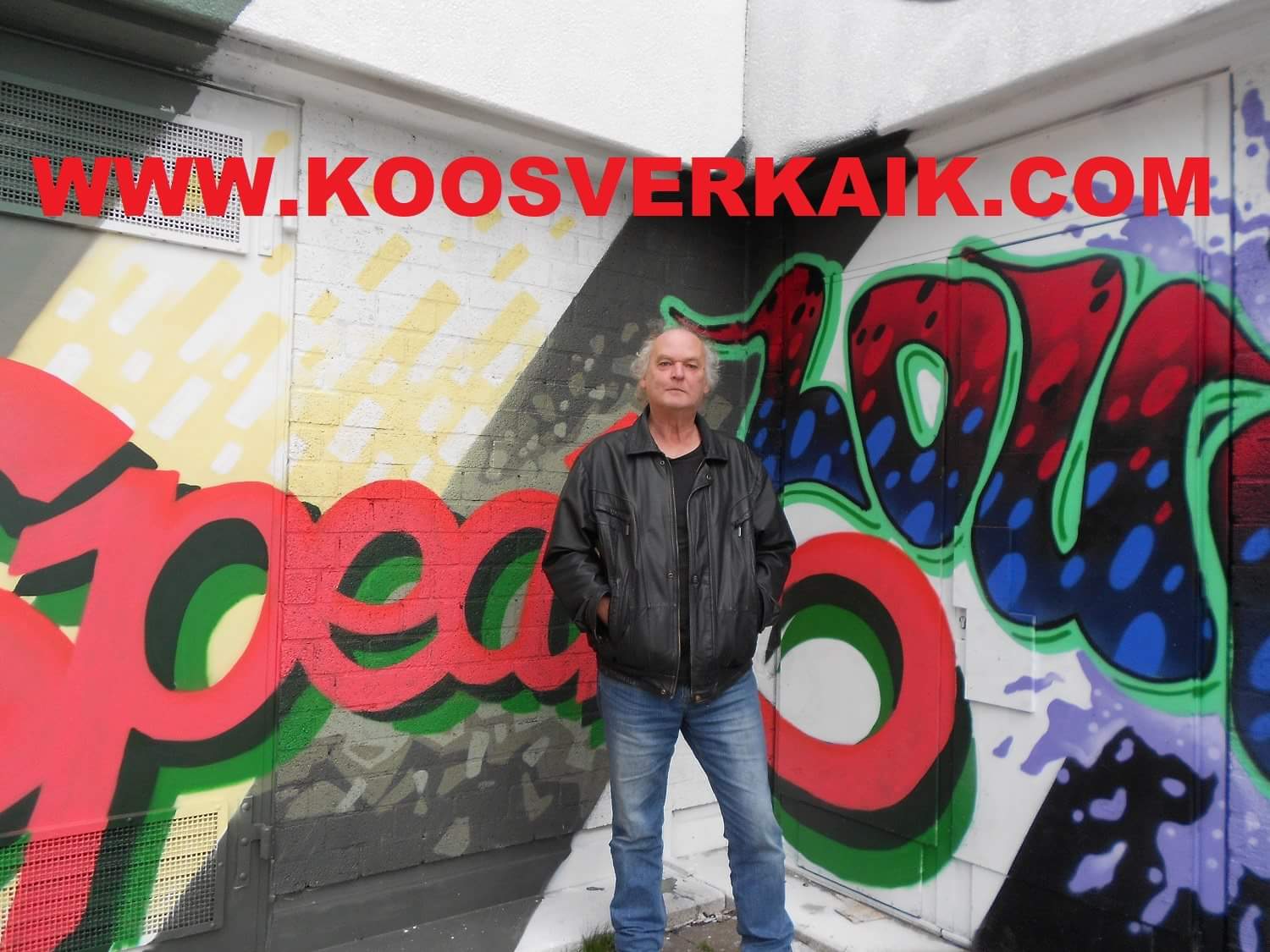
Reprinted with permission by Fiona Mcvie from her blog, Author Interviews.
By Fiona Mcvie
Fiona: Where are you from?
I am from The Netherlands, I was born in a small village near Rotterdam.
Rotterdam has one of the biggest harbours in the world. It is said that the inhabitants are ‘born with rolled back sleeves’ – which means that everyone likes to work hard. That’s the spirit I like. I am a writer and work every day and never had a writer’s block.
Fiona: Tell us your latest news.
Outer Banks Publishing Group, Raleigh, North Carolina, USA, offered me a contract for my series of children’s books Saladin the Wonder Horse. Four books. The covers are already done. Everything looks splendid. This is what the stories are about:
England, the twelfth century:
Angie, a poor Saxon girl, looks after the horses of Lord Baltimore.
It is a rough time in England, where Prince John sits temporarily on the throne of his brother Richard the Lionheart.
The girl plunges into wild adventures when she tries to keep a colt out of the greedy hands of the prince. She meets a mysterious knight, who gives her his horse – Saladin, the black wonder horse.
With the two faithful animals, Angie manages to reach the camp of Robin Hood, bringing him an important message.
Silver, the colt she saved, learns quickly from the clever Saladin.
The exciting adventures of Angie, Silver, and Saladin come to a head as the girl resolves to outsmart Prince John.
And of course, she cannot achieve that without her special horses…and some very special friends.
Fiona: What inspired you to write the Saladin the Wonder Horse books?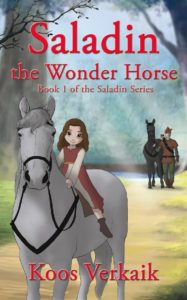
I wrote dozens and dozens of scripts for comic magazines. The drawings were done by Spanish artists. The comics were published all over Europe: The Netherlands, Belgium, Denmark, Sweden, Norway, France… The main publisher asked me to write a series about horses. I came up with Saladin the Wonder Horse.
The publisher decided to print the books in Sweden. They came to The Netherlands by truck: 40.000 paperbacks!
Before Saladin the Wonder Horse, I had written another series for another publisher. The title of the series was Slimmetje, which means as much as ‘Smarty’. It was published by two different companies and more than 450.000 copies were sold in the Netherlands only!
Fiona: How did you come up with the title?
I have always been interested in history. Saladin is a name you will find when you read about the crusades. Fascinating times. I created Saladin, a big black war horse, brought to England by a wounded knight. It is a true wonder horse and little Angie had to take care of him when the knight passes away.
Fiona: Did you learn anything during the writing of your recent book?
When you write books, you learn something every day. I often write fantasy, but the stories take place in a normal world. Sometimes in the present, sometimes in the past. Then you have to deal with lots of facts, you must know what you are writing about.
I could not have written Saladin the Wonder Horse without knowing about the middle ages.
Fiona: If your book was made into a film, who would you like to play the lead?
Saladin the Wonder Horse would be a terrific film. The producers and the director must look for a clever girl who is able to ride a horse.
Fiona: Do you have a specific writing style? Is there anything about your style or genre that you find particularly challenging?
I write children’s books and novels. More than often I write two books at the same time. Start writing at half past seven in the morning. All I need is one single idea – that is enough to start writing, I never know how it will end. There is chaos in my head and I need to put an avalanche of words on the screen of my laptop to clear up my thoughts. I feel free when a book is finished, but soon it starts all over again and I concentrate on writing new things. I have written over sixty different titles and hundreds of comic scripts, worked as a copywriter for a big agency, and wrote songs and plays. It just never stops and I am so grateful for that!
Fiona: To craft your works, do you have to travel? Before or during the process?
Love to travel. Mostly by car. From The Netherlands it’s easy to drive to Germany, Austria, Switzerland. But I don’t have to travel for my books. Been to New York – I was invited by Bill Thompson, the editor of the first books by Stephen King and John Grisham. That was a great experience.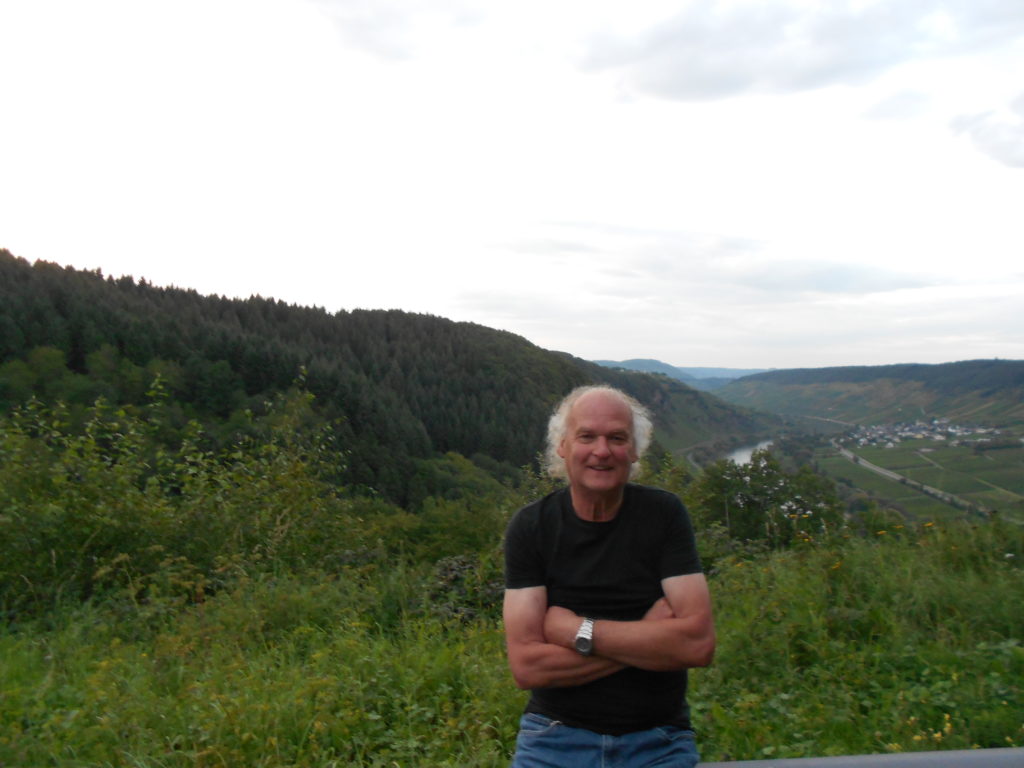
Fiona: Who designed the covers?
They were done by Maverick Book Services in the Philippines. Publisher Anthony Policastro and I instructed the artist and we received sketches and different ideas. We picked out the best designs. Isn’t that fascinating? I am in The Netherlands, my publisher in the USA, the cover artists in the Philippines and the Internet brings us together!
Fiona: Is there a message in your novel that you want readers to grasp?
Yes! The message in all of my books is simple: “I hope you will have a good time.”
What I write is pure entertainment. Of course, I have some interesting things to say as well, but that is not the main goal. I just hope that my readers (kids and adults) will enjoy my stories.
Fiona: When and why did you begin writing?
At the age of 7. I filled a pile of notebooks. I was Europe’s youngest scenario writer for comics when I was only 16 and my first novel was published when I was 18 years old.
Fiona: When did you first consider yourself a writer?
When I was 16. I had three pages in a weekly for several years. It was fascinating to learn that so many kids in school bought the comics and read my stories.
“As a boy, I was, of course, not allowed to write too late at night. The bookkeeper of my father’s business knew I had that drive to write after midnight. He gave me a special old light bulb, that was used during the Second World War; lights were forbidden then, they could attract bombers. I used the bulb to write at night: a small beam shone down on my paper. Only I was able to see it. It was exciting to write my stories in the dark.”
Fiona: Are there any new authors that have grasped your interest? Who is your favourite writer, and what is it about their work that really strikes you?
I always mention Jack Vance when someone asks me about my favorite writers. He was such a good fantasy writer. And Edgar Allan Poe still fascinates me. He remains a mystery and some of his short stories are almost too scary to read…
Fiona: Outside of family members, name one entity that supported your commitment to become a published author.
Will tell you a secret. As a boy, I was, of course, not allowed to write too late at night. The bookkeeper of my father’s business knew I had that drive to write after midnight. He gave me a special old light bulb, that was used during the Second World War; lights were forbidden then, they could attract bombers. I used the bulb to write at night: a small beam shone down on my paper. Only I was able to see it. It was exciting to write my stories in the dark. The old bookkeeper encouraged me to write my stories when I was still a kid.
Fiona: Do you see writing as a career?
Yes, I do. I have always worked at home and could make money by being an editor and a copywriter and that gave me the opportunity to build a career as a writer. With ups and downs! Now I have found a home for Saladin the Wonder Horse and other series of children’s books. Signed a contract for twelve novels with Righter’s Mill Press, USA; they are the owners of Three Corners Entertainment for film and television and all titles are under contract with this film company as well.
Fiona: If you had to do it all over again, would you change anything in the Saladin series?
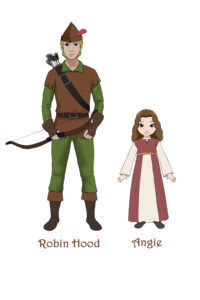 Not as word. I always read my own work several times, because I write in Dutch and then have to translate it into English. During that process I can change the text as often as I wish. After the translation is done, I am satisfied and nothing had to be changed.
Not as word. I always read my own work several times, because I write in Dutch and then have to translate it into English. During that process I can change the text as often as I wish. After the translation is done, I am satisfied and nothing had to be changed.
Fiona: Any advice for other writers?
One advice: Go Your Own Way. Which means read a lot, but never imitate your favorite writers; surprise the world with your own style. Every new writer has to find his way in the publishing world. It is not easy, but so what? If you want to become a writer, then write – as simple as that. When you think it is time, you should try and find an agent who is willing to help you.
Fiona: Anything specific you want to tell your readers?
Read the first book of the Saladin series: Saladin the Wonder Horse.
Adults, mothers, fathers, grandmothers, grandfathers: buy it for your kid or grandchild. He or she will love it. Angie is a hero for girls. And the boys will especially like the brave boy, Joe, and his big brown bear Bruto! That is pure adventure!
Fiona: What book are you reading now?
What We Cannot Know: Explorations at the Edge of Knowledge, from Marcus du Sautoy. A fascinating book about what we will (probably) never know.
Fiona: Do you remember the first book you read?
A Dutch journalist, Fije Wieringa, wrote about that in Penthouse:
“Once I asked the Dutch author Koos Verkaik, whose reputation in the Netherlands is similar to that of Stephen King, which book had influenced him the most in his life. Without losing a second he replied, ‘Alice in Wonderland, that is such a weird and scary book. A lot scarier than any of my own horror and ghost stories.'”
Fiona: What makes you laugh/cry?
I seldom cry. Life itself makes me laugh, because it is a rather cruel joke; we have to deal with consciousness, we know that there is a beginning, there is an end… but I am a very optimistic man and I love to laugh every day.
Fiona: Is there one person, past or present, you would love to meet? Why?
Gerrit Jacobsz, an ancestor from 1720. He is my oldest known ancestor. In Holland, your second name is the one of your father: Jacobsz. It means ‘son of Jacob’. My full name is Jacobus Jan; I would love to shake hands with that man from 1720. I have a lot to tell him and who knows what he can tell me…
Fiona: Do you have any hobbies?
I play guitar. You can find me playing blues here:
Fiona: Imagine a future where you no longer write. What would you do?
Play guitar in a blues band.
Fiona: What do you want written on your head stone?
He refused to leave before the last word was written…
Fiona: Do you have a blog or website readers can visit for updates, events and special offers?
www.koosverkaik.com
https://www.facebook.com/Verkaik.Koos/
https://www.outerbankspublishing.com/publishing/netherlands-childrens-book-author-koos-verkaik-signed-on/
_____________________________________
Book 1: SALADIN THE WONDER HORSE
Angie looks after the horses of Lord Baltimore.
It is a rough time in England, where Prince John sits temporarily on the throne of his brother Richard the Lionhearted.
The girl plunges into wild adventures when she tries to keep a colt out of the greedy hands of the prince. She meets a mysterious knight, who gives her his horse—Saladin, the black wonder horse.
With the two faithful animals Angie manages to reach the camp of Robin Hood, bringing him an important message.
Silver, the colt she saved, learns quickly from the clever Saladin.
The exciting adventures of Angie, Silver, and Saladin come to a head as the girl resolves to outsmart Prince John.
And of course she cannot achieve that without her special horses . . . and some very special friends.
Book 2: SALADIN AND SILVER
Angie roams the country, that is reigned by the ambitious Prince John.
An encounter with a mysterious knight saddles her with an even mysterious horse: Saladin the wonder stallion. This horse reveals himself as the teacher of Silver, her own, silver colored horse. This way Silver becomes a wonder horse as well.
Angie has gone far away from Nottingham and the castle of the prince.
Of course she rides Silver. The beautiful horse is no longer a colt, hardly seems to feel the weight of the young girl and loves it to be together with her.
Again Angie meets the most odd people – a tinker, Joe and his bear Bruto and especially the spoiled Princess Wanda, daughter of Prince John, who is after her favorite horse! Angie has become an outlaw and a fugitive: she has to keep Silver out of the hands of the greedy princess!
Book 3: SILVER AND THE GHOST HORSE
Again Angie and her wonder horse Silver plunge into the most dangerous adventures. It all starts, when a sly councilor and a giant soldier decide to destroy the camp of Robin Hood. No one knows where to find that camp of Robin and his men. No one, except for… Angie! Soon everyone is looking for her and things don’t look good for the girl. But she can count on the help of Silver and Saladin and of her friend Joe and his bear Bruto. And another party is interested in Angie and Silver! A strange man, who calls himself Sultan! And where do these mysterious ghost horses come from? Angie and her horse stay tough. For together they are strong, together they stand tall in a land full of enemies and problems…
Book 4: THE JESTER OF NOTTINGHAM
Prince John reigns over England, now his brother Richard Lionheart is not there. He exploits the people and wears Richard’s crown. Everyone fears this mean prince. Except for men like Robin Hood and… girls like Angie!
Angie roams the country on the back of her wonder horse Silver and comes across the most odd persons. She runs into knight Rush and his little son Arthur, she meets a merry rat catcher en returns to the camp of Robin Hood. In the meantime Prince John organizes an election: the man who becomes the Jester of Nottingham, is allowed to reign the country for one week. He does not know that King Richard has set foot on English ground again! Angela knows where she can find the king and looks him up with Silver and the mighty Saladin…
And the king can use the help of Angie and her wonder horses!
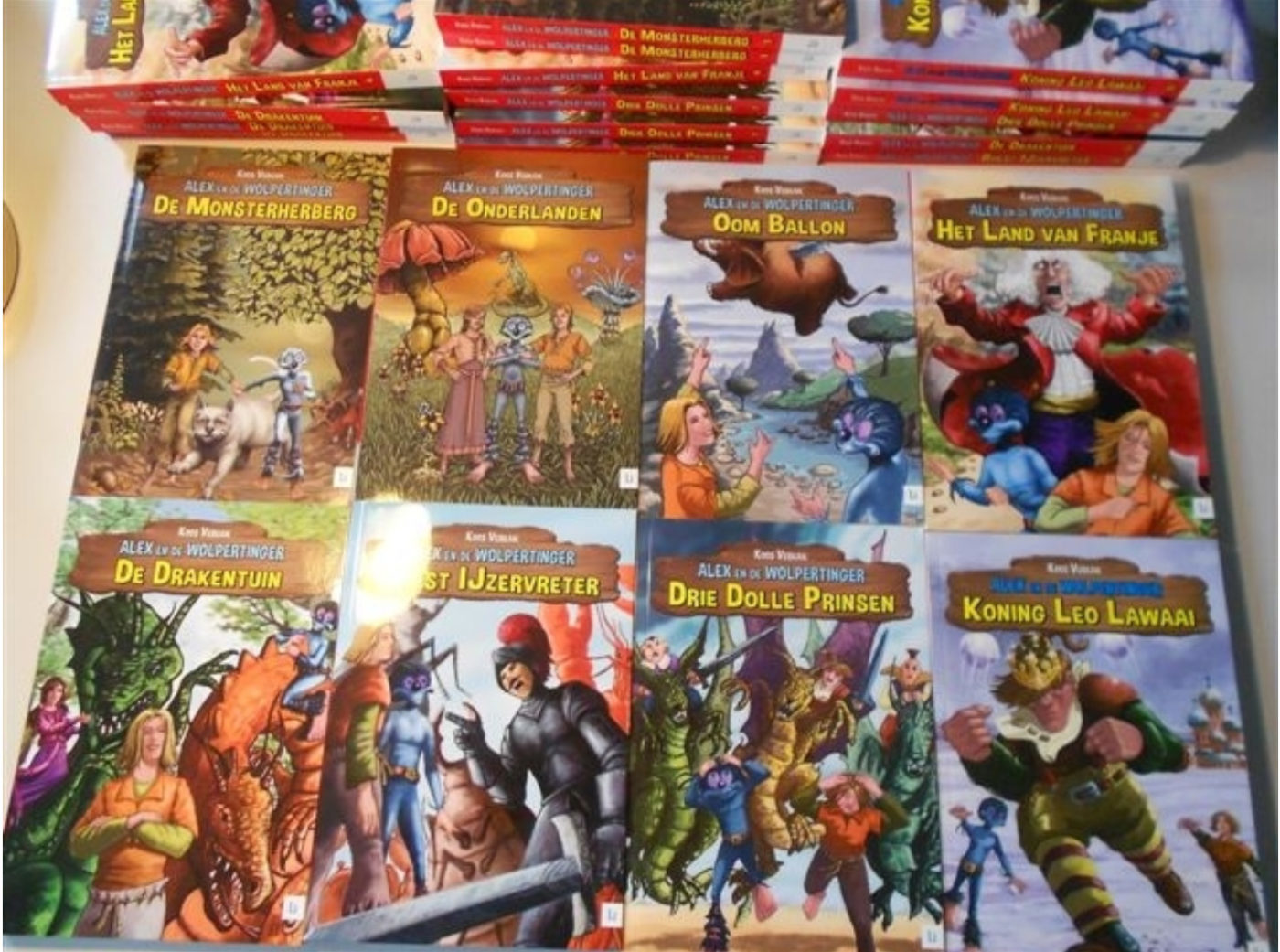
Outer Banks Publishing Group recently signed a four-book contract with Scifi and children’s book author Koos Verkaik of The Netherlands.
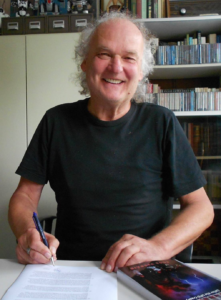
Author Koos Verkaik
Koos’ Saladin, the Wonder Horse, a four book series, is about a poor Saxon girl, who is given a special horse, Saladin, by a mysterious knight during the turbulent times in 12th century England during the reign of Richard the Lionheart and Robin Hood.
The series will be published in early 2018.
Koos says he developed his own writing voice and that is what makes his books different, according to an interview with Circle of Books.
“My books are different from other writers, they are all typical ‘Koos Verkaik Books’. I love it to make the reader wonder what it is all about and where it will lead to. But I never liked books that end without the reader knowing what it was all about. Therefore I always come up with explanations. Why one should buy them? Buy one of my books and I take you by the hand, lead your through the most insane situations, you will have a great time and after having read the last word, you will say: “Yes, that was worthwhile!” Up to the next Koos Verkaik Book!”
Koos, a ‘Dutchy’ with spunk and an inexhaustible drive and fathomless imagination, is one of the most prolific authors of Scifi and children’s books in The Netherlands. His novels, All-Father and Wolf Tears, earned him the moniker, the Dutch Stephen King.
He wrote his first Scifi novel, Adolar, in a weekend when he was 18 years old and the manuscript was published shortly thereafter.
Koos has published over 60 books, both children’s books and novels, many hundreds of comic scripts, and he has worked as a copywriter. He is currently working on several screenplays and new novels.
To read more about Koos and his work visit his website at www.koosverkaik.com or follow him on Facebook.
His most recent interview can be read on authorsinterviews.

Author James Patterson, former President Clinton (Genaro Molina / Los Angeles Times; Diedre Laird / Charlotte Observer)
Have you heard…former President Bill Clinton and iconic author James Patterson have teamed up to write a novel, The President is Missing, that will be published June 2018.
Alfred A. Knopf and Little, Brown and Company will jointly publish the novel, which represents a rare foray into fiction for a former president, according to the report published in The New York Times.
You can read the rest of the story in the Times here.
